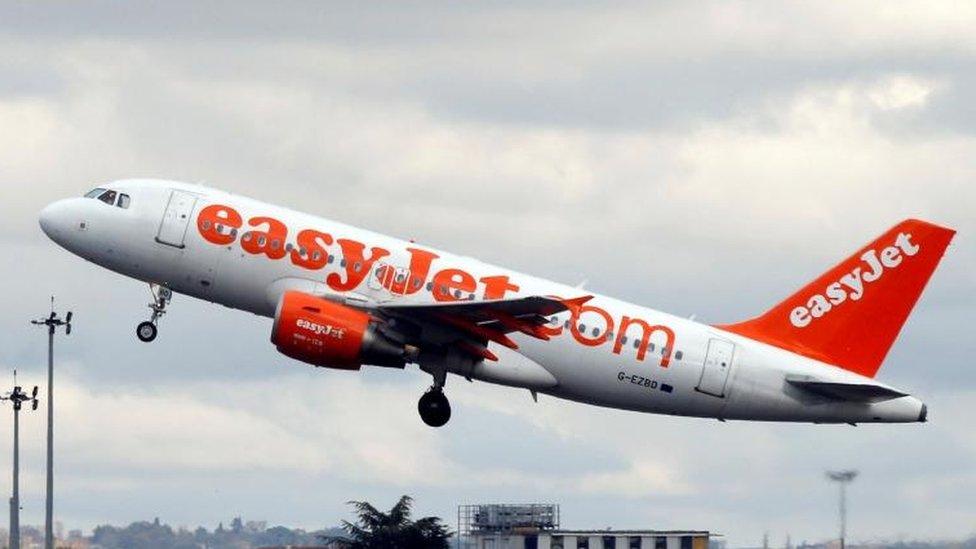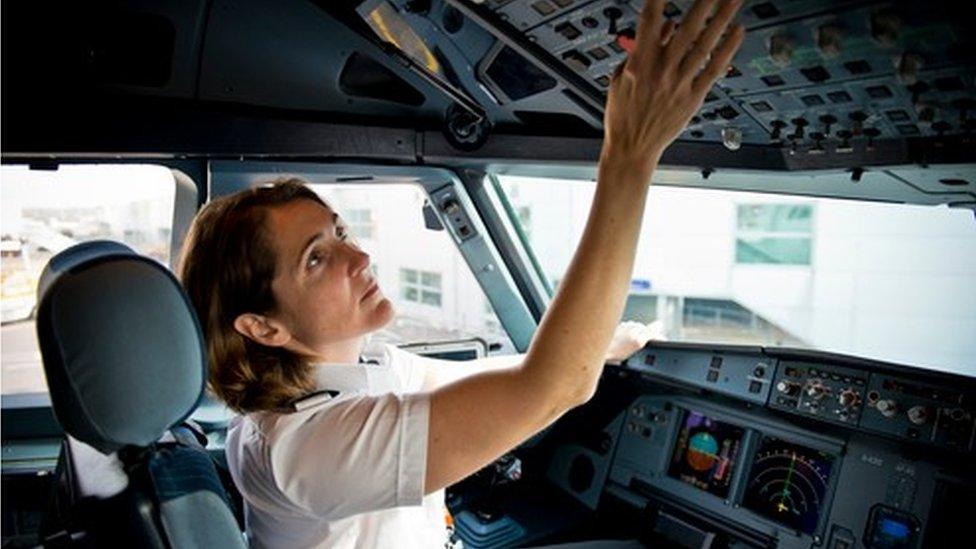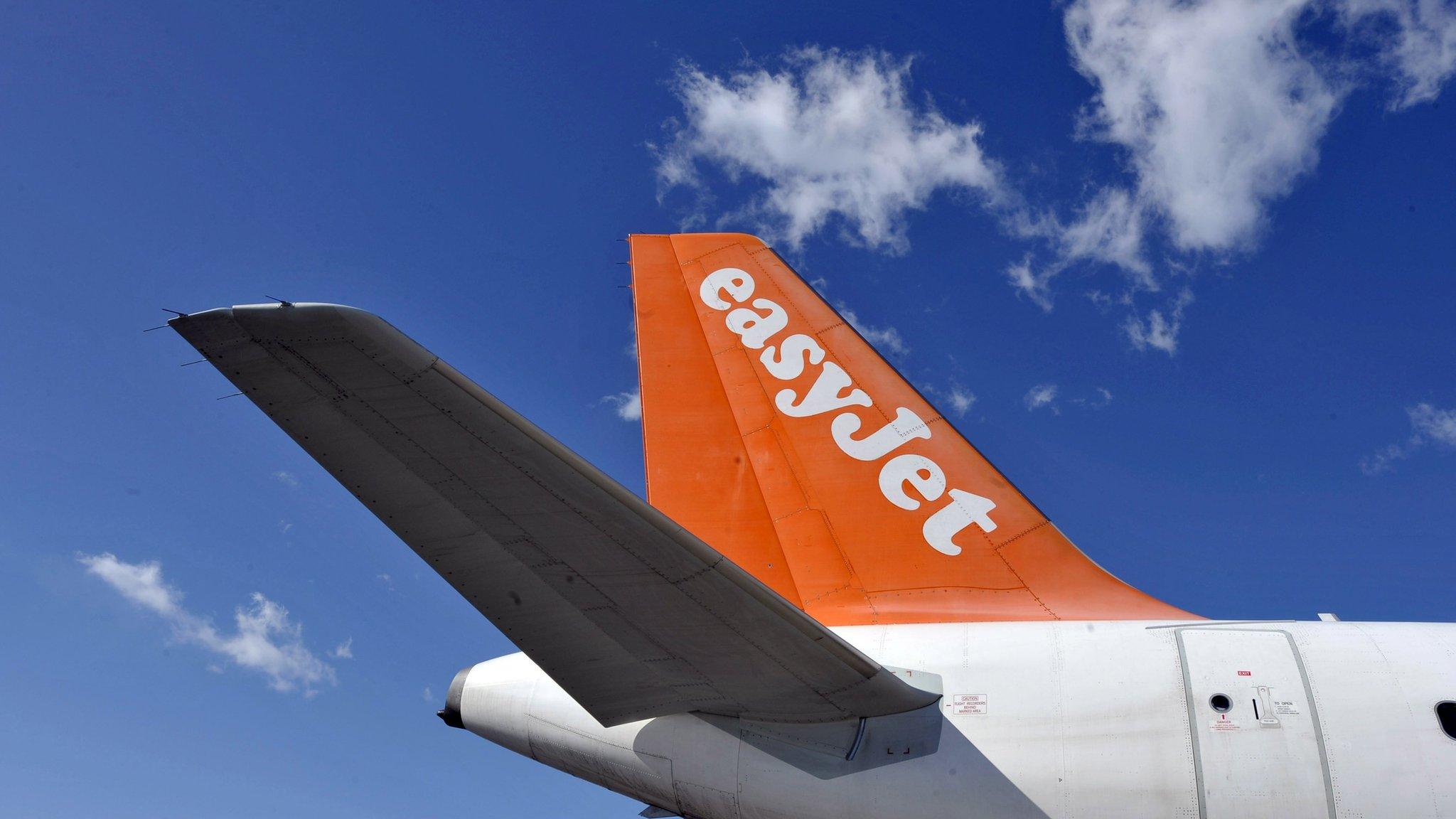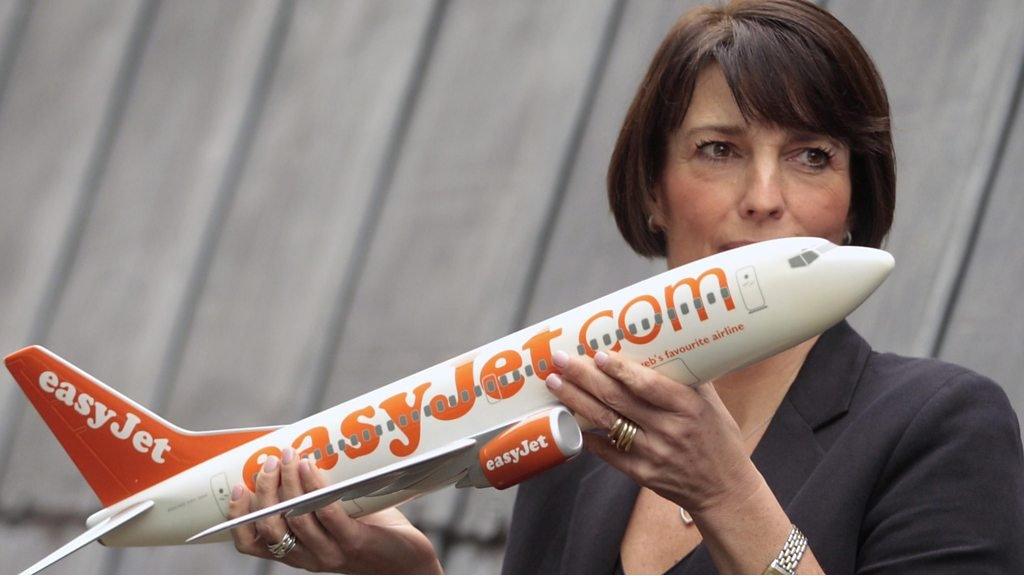Easyjet says lower pound to cut profits by £105m in 2017
- Published

Easyjet has said the lower pound will cut its profits by a larger-than-expected £105m this year.
Its forecast came as it reported "solid" trading in the final three months of 2016, with an 8.3% rise in passenger numbers to 17.4 million.
But stripping out the effects of the fall in the pound, its revenue per seat was down by 1.2% to £51.64 per seat.
Investors reacted badly to the mixed report, pushing the carrier's shares down 8.8%.
Easyjet's chief executive, Caroline McCall, said "Easyjet has delivered a solid first quarter [the final three months of 2016] with revenue, cost and passenger numbers in line with expectation. This is despite tough pricing and operating environment."
The pound has fallen by about 17% against the dollar since the Brexit vote in June last year. In November, Easyjet had estimated the weaker pound would cost it £90m in 2017.
Bracing for Brexit
Easyjet is in the process of establishing a separate presence on the European mainland, in readiness for when the UK leaves the EU.
That could mean the UK losing Europe's internal "open sky" arrangement.
Since 1994, any EU airline has been free to fly between any two points in Europe, something that enabled companies such as Easyjet and arch-rival Ryanair to grow to their present size.
Current EU flying rights might have to be renegotiated and the new company would ensure Easyjet could operate within the EU, rather than having to fly in and out of the UK on every route.
It said setting up a new European entity would cost it £10m
Easyjet, which is one of the biggest 100 in the UK, is planning to keep its London listing and Luton headquarters.
It has bases across 11 UK airports and flies more than 800 routes on its network across Europe, the Middle East and North Africa.
- Published15 December 2016

- Published15 November 2016

- Published15 November 2016
